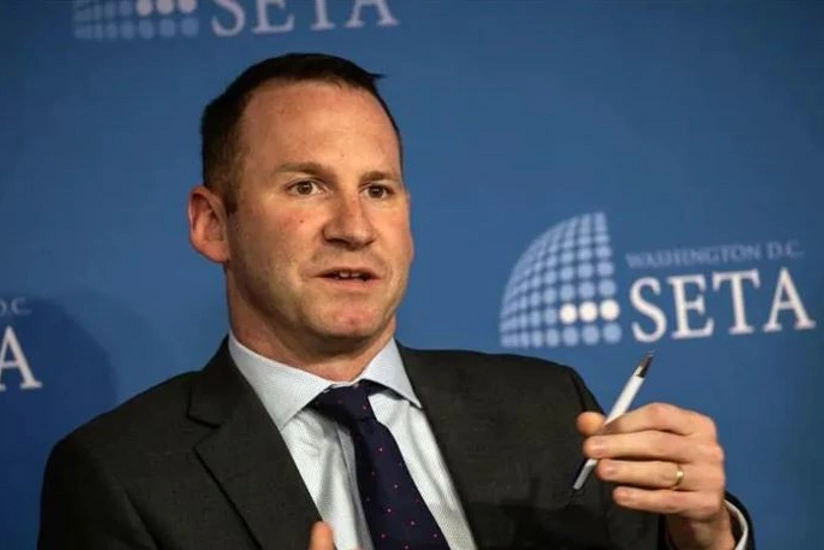Luke Coffey: US needs to include Azerbaijan in its co-op with Central Asian countries
- 06 November, 2025
- 17:13

To effectively cooperate with the countries of Central Asia, the US needs to more actively engage with Azerbaijan, Luke Coffey, a senior fellow at the Hudson Institute, said in his article headlined "Using the C5+1 Summit to Get US–Central Asian Relations on Track."
Report quotes him as saying the C5+1 meeting (the five Central Asian countries and the United States), which will be held in Washington on November 6, coincides with an important geopolitical turning point: Russia's influence in the region has noticeably weakened amid the war in Ukraine.
According to him, the participation of US President Donald Trump, who has recently become increasingly active on the international stage, will give the C5+1 meeting a significant diplomatic boost.
"Recently (August 8), he (President Trump) hosted a landmark summit between the leaders of Armenia and Azerbaijan, which could lead to peace in the South Caucasus. This summit was a significant achievement in a region that Moscow had long considered part of its sphere of influence. Although the United States is not a Eurasian country, it reasserted its relevance to the region by hosting this meeting on August 8 [in Washington]," Coffey noted.
The senior fellow at the Hudson Institute noted that cooperation with Central Asia makes strategic sense for the United States, as the region is rich in natural resources - oil, natural gas, and rare earth metals.
"Furthermore, some of the most important transit routes in Eurasia pass through Central Asia, many of which have retained their significance since the days of the Great Silk Road," the expert emphasized.
He believes that the United States has four main goals in the region: promoting growth and stability; strengthening regional sovereignty; increasing engagement with the West; the creation of energy and trade routes bypassing Russia and Iran.
"Overland trade and transit across Eurasia have been the driving force of economic development since the Silk Road. This artery linking East and West remains significant. With the imposition of sanctions by the US and its partners against Russia and Iran, many countries are seeking alternative trade and transit routes between Europe and Asia. There is only one viable option for East-West trade on the Eurasian continent that bypasses Russia and Iran-the Trans-Caspian International Transport Route (TITR). This artery, commonly known as the Middle Corridor, extends from Central Asia through the Caspian Sea and the South Caucasus to Europe, from where goods are shipped to global markets," he writes.
Luke Coffey believes the US needs to encourage countries in the region to make greater use of the Middle Corridor:
"Container traffic along the Middle Corridor has grown rapidly in recent years. In 2022, container volumes increased by approximately 33% compared to 2021, reflecting growing demand for transit routes outside of Russia. By 2024, volumes more than doubled as governments and companies continued to shift logistics toward the Caspian Corridor. Kazakhstan, a key energy exporter in the region, has begun diversifying its strategic exports using this route. About 64% of its westbound uranium exports now go via the Middle Corridor, a dramatic change from just a few years ago. The country also exported approximately 1.4 million tonnes of oil via the Baku-Tbilisi-Ceyhan pipeline in 2024 as part of a broader effort to reduce its dependence on Russian infrastructure. Astana plans to increase its BTC exports to approximately 2.2 million tons in the near future," he notes.
The expert also believes that for more successful US engagement with Central Asian countries, Washington should secure Baku's support, transforming the "C5+1" format into a "C5+2": "For economic, historical, and logistical reasons, Azerbaijan, although not a Central Asian country, is a gateway to the region for the transatlantic community. If the US wants these initiatives to succeed, Azerbaijan must have a seat at the negotiating table. This engagement could be as simple as adding a special "C5+2" session to the end of the annual "C5+1" meeting."
